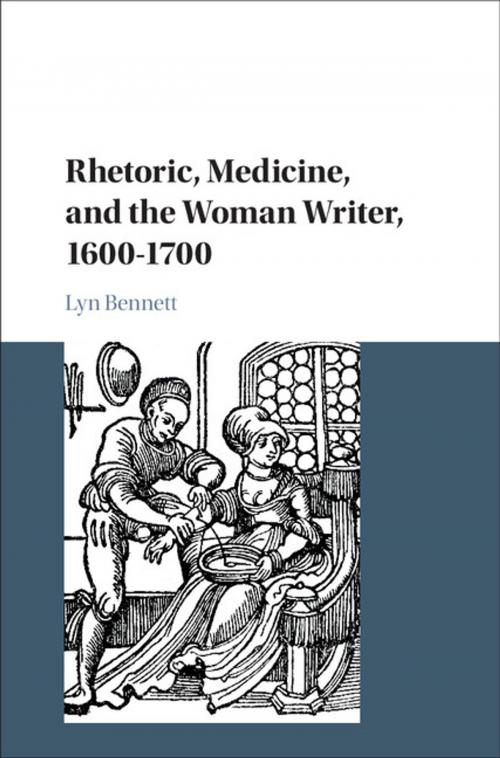Rhetoric, Medicine, and the Woman Writer, 1600–1700
Fiction & Literature, Literary Theory & Criticism, British, Nonfiction, Reference & Language, Language Arts| Author: | Lyn Bennett | ISBN: | 9781108690423 |
| Publisher: | Cambridge University Press | Publication: | February 8, 2018 |
| Imprint: | Cambridge University Press | Language: | English |
| Author: | Lyn Bennett |
| ISBN: | 9781108690423 |
| Publisher: | Cambridge University Press |
| Publication: | February 8, 2018 |
| Imprint: | Cambridge University Press |
| Language: | English |
How did physicians come to dominate the medical profession? Lyn Bennett challenges the seemingly self-evident belief that scientific competence accounts for physicians' dominance. Instead, she argues that the whole enterprise of learned medicine was, in large measure, facilitated by an intensely classical education that included extensive training in rhetoric, and that this rhetorical training is ultimately responsible for the achievement of professional dominance. Bennett examines previously unexplored connections among writers and genres as well as competing livelihoods and classes. Engaging the histories of rhetoric, medicine, literature, and culture throughout, she goes on to focus specifically on the work of women who professed as well as practiced medicine. Pointing to some of the ways women's writing shapes realities of body, mind, and spirit as it negotiates social, cultural, and professional ideologies of gender, this book offers an important corrective to some long-held beliefs about women's role in early modern discourse.
How did physicians come to dominate the medical profession? Lyn Bennett challenges the seemingly self-evident belief that scientific competence accounts for physicians' dominance. Instead, she argues that the whole enterprise of learned medicine was, in large measure, facilitated by an intensely classical education that included extensive training in rhetoric, and that this rhetorical training is ultimately responsible for the achievement of professional dominance. Bennett examines previously unexplored connections among writers and genres as well as competing livelihoods and classes. Engaging the histories of rhetoric, medicine, literature, and culture throughout, she goes on to focus specifically on the work of women who professed as well as practiced medicine. Pointing to some of the ways women's writing shapes realities of body, mind, and spirit as it negotiates social, cultural, and professional ideologies of gender, this book offers an important corrective to some long-held beliefs about women's role in early modern discourse.















